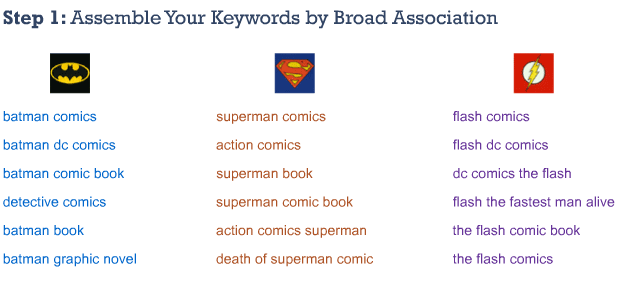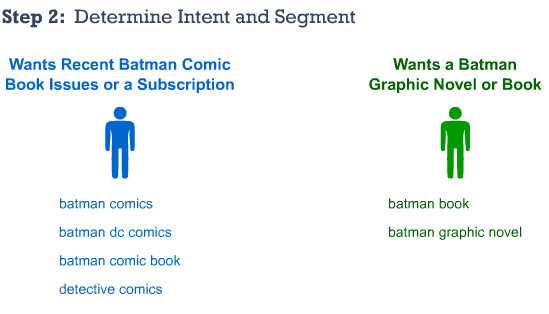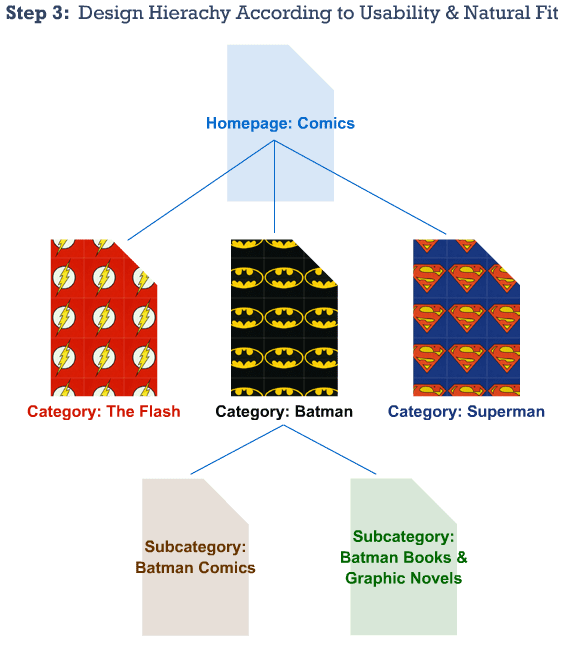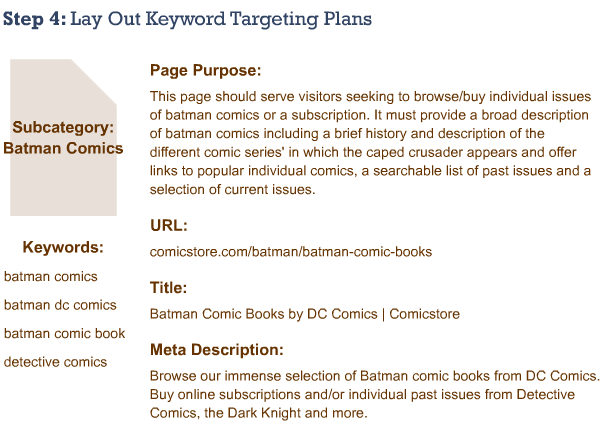
Keyword Targeting: How to Employ Multiple Keywords for SEO & Conversions
The author's views are entirely their own (excluding the unlikely event of hypnosis) and may not always reflect the views of Moz.
At some point during your University's SEO 201: Advanced Keyword Research & Targeting class, they probably gave a few lectures and case studies on how to effectively split up your keyword research list across multiple pages and use those terms/phrases to maximum benefit. But, for those who might have missed that lesson (which would be, umm, all of us, since no formal education in SEO exists), a handy refresher might be in order.
Many SEOs struggle to answer questions like:
- How many keywords can I target on a page?
- Should I try to target all of my most important terms on my homepage (since it gets the most link juice)?
- When I should try to target similar phrases together vs. splitting them up?
This post is meant to help with precisely those issues.
At the end of the keyword research phase you've established which terms and phrases are worthwhile. Now you'll need to determine which keywords to target where, and how. This four-step process should make that easy (and apparently, checklists are awesome).

I'm using comic books both because they're fun, and because a recently retired-from-Google friend opened his own comic shop in West Seattle, so I've got superheroes in tights on the brain. In the example above, I've sorted several high demand keywords into groupings that relate to their core subject - in this case, by superhero. You can do this with products, articles, blog post categories or any type of content.

Next, I need to segment the keywords in each group by the intent of a potential visitor. This is absolutely critical, because even if two keyword terms/phrases are very similar, putting them together can be disatrous if the goals of the searcher are different. It's technically worse to rank 1st and convert visits at 0.1% than to rank 10th and get a conversion rate of 2%. By segmenting on intent, you can make sure to uniquely target searchers seeking a specific goal without cannibalizing or misdirecting traffic to the detriment of your site's usability/conversion rate.

If possible, you'll want to use the insight you gain from the keyword research and targeting process to help determine the site's hierarchy and information architecture. Even if you're deep down in the weeds on an already existing site, you can employ intelligent cross-linking to make sure visitors can find what they're seeking from potential landing pages. The concept should be to make the primary content of the page the most likely target of the searcher's intent, then provide navigation to secondary, tertiary or more specific needs.

You now have the keyword groups segmented to individual pages and a hierarchy for your site, so the final step is assigning the keyword targets to individual pages and providing recommendations on Titles, URLs, Meta Descriptions and page functionality. In the example above, I've employed multiple keywords in the page elements (plural and singular versions of "comic" as well as "dc comics" and "batman comics") to help attract that traffic. I'm also listing "detective comics" here, though technically, I might even have a separate subcategory for that individual series that's linked-to on this page.
This planning process is key to getting the best results possible. Over time, your analytics data can help show you where assumptions have been incorrect and you can course correct. What's important is understanding the basic rules for keyword targeting:
- No page should target keywords just because it "can rank for them;" you need to also consider the visitor experience and whether the page's content can serve as many "keyword masters" as you're targeting.
- Pages can target multiple keywords and phrases at once so long as the intent is the same. Don't arbitrarily split up pages or make a new page for every permutation of a keyphrase simply so you can have "optimum" optimization. Remember it's much easier to earn links to one page than to many (and much easier to build one good funnel than two).
- Keyword targeted pages need to provide the content a visitor is seeking and the links to the detailed pages they might want. Search engines are pretty smart - if visitors aren't getting value from your pages, they're not going to link to them, not going to click them in the SERPs and not going to recommend them to others. Even if you manipulate your way to the top today, in the long run, the engines will identify methods to get relevant, quality content ranking.
I'd also suggest checking out previous posts on:
- Perfecting Keyword Targeting & On-Page Optimization
- Optimizing for Multiple Word Order Search Phrases
Hopefully this has been valuable and I'd certainly appreciate examples and suggestions from the community on how you employ keyword targeting for maximum benefit.
p.s. I may have overstated when I said there's "no" formal education. Market Motive offers some great online classes and certification as does Search Engine College. And yes, SEOmoz has a video training series, too - the metaphor was meant tongue in cheek :-)



Comments
Please keep your comments TAGFEE by following the community etiquette
Comments are closed. Got a burning question? Head to our Q&A section to start a new conversation.